From eight in the morning to the wee hours of the night, Jake Polledri would stand behind the counter baking bread; smearing sauces and sprinkling cheese across the finished dough, parcelling up gushing bundles of carbohydrates and handing them over to ravenous Bristolian punters.
After closing the sandwich shop his parents ran at around 1am, Polledri grabbed what sleep he could, stuffed his rugby gear into a holdall and hoofed the 40 miles north to Hartpury where he played in National League One.
Food is a continual theme in the back-row’s giddy ascent from the third tier of English rugby to one of Europe’s most revered ball-carriers in just three years, from a raw, but gifted bairn at Hartpury to the rampaging colossus of a Gloucester team in transition, and the spearhead among a brood of Italians itching to earn the respect of the rugby world.
Then, there is the Devon ice-cream factory where his grandmother found work after leaving the chaos of post-war Italy for Britain, and where she met her husband-to-be. The Subway sandwich branch where Polledri put in those exhausting, monotonous 17-hour shifts. And the bacon rolls he was wolfing down at Kingsholm when his phone rang and he was thrust, at a moment’s notice, into Gloucester’s match-day squad for the very first time.
“It came to the end of the season and I got called in to Andy Robinson’s office. As a young kid, I was really excited, but he said there wasn’t an opportunity here. I was a bit distraught with that, so I went to play for Hartpury in National One.”
It is not food that drove him all this time, though, but hunger. A born and bred Bristolian, his father Peter played nearly 500 games for the storied club. In 2015, Polledri Jnr was on the fringes of the first team while Bristol, then coached by Andy Robinson, splashed the cash at the squad in their desperation to escape the Championship. He reckoned he was motoring along quite nicely for a 19-year-old, but then came an almighty blow.
“I wasn’t officially in the academy but I was one of those guys they roped in for the [now-defunct] British & Irish Cup,” Polledri tells The XV.
“It came to the end of the season and I got called in to Andy Robinson’s office. As a young kid, I was really excited, but he said there wasn’t an opportunity here. I was a bit distraught with that, so on leaving leaving college, I went to play for Hartpury in National One.”
For two seasons in Gloucestershire, Polledri was relentless. He trained the house down and fought for every inch on the field, driven on by the pain of rejection and the desire to make it.
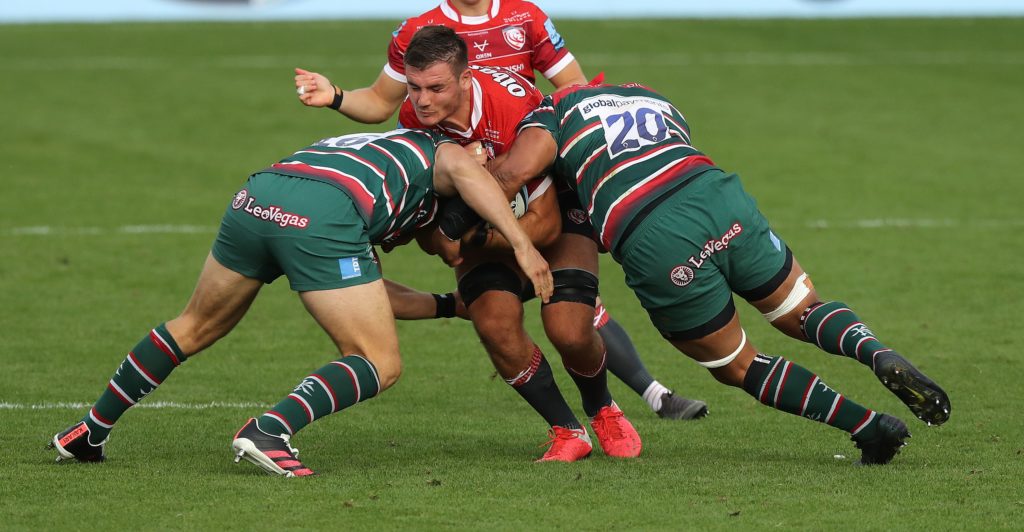
In his second campaign, Hartpury surged unbeaten to the title, earning Championship status for the first time in history. It was then the offers from top-flight clubs began to pour in.
Throughout it all, Polledri augmented his rugby with long hours behind the Subway perspex. In truth, he had little choice – his parents, the franchisees, expected their boy to do his part for the family business.
He does not paint the monotonous routine as a huge act of martyrdom, or any great hardship, but it taught him the value of hard graft. More presciently, it offered a glimpse of the real world, a world he was not ready to inhabit.
“I would call it character building,” Polledri chuckles. “As it was my parents’ shop, if nobody else wanted to do the shift it would be, ‘Come on, help out’. I’d be saying to them that it was a long shift, but they’d tell me, ‘Well it’s our business, you have to help!’ I was always the last resort.
“I’m not going to get the violin out, I’m sure there are plenty other people that are in the same sort of situation, but it was taught me valuable lessons. It spurred me on to work hard.
Jake Polledri on his Subway shifts
“I used to play on a Saturday and do a night shift on a Friday, so that would mean closing up at 00:30 if you were lucky or later if you were busy. It was just a case of making ends meet in terms of getting up there to Hartpury and training or playing.
“I’m not going to get the violin out, I’m sure there are plenty other people that are in the same sort of situation, but it was taught me valuable lessons. And it spurred me on to work hard. I knew that I would rather be playing rugby so I put all my eggs in one basket for those two seasons at Hartpury and really pushed for it.”
The seeds of his toil bore fruit in 2017. Gloucester, who have extremely close links with Hartpury, offered Polledri a professional deal. The opportunity arose in comical fashion and the youngster grasped it.
“I was not picked in the match-day squad for my debut. I was up in the media room, where me and the boys had managed to get in and grab some bacon rolls,” he says.
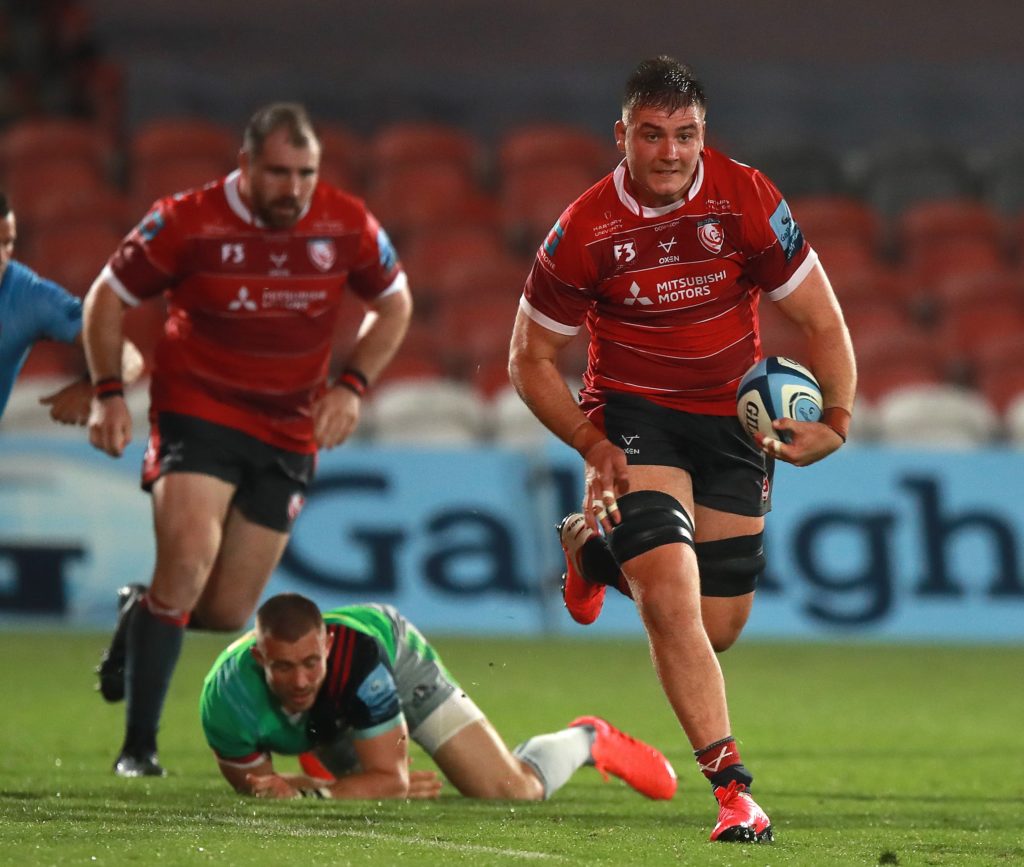
“I got a phone call to say that Ed Slater had badly dislocated his finger. They’d tried to ring Charlie Beckett but he was coaching, so I got roped in to cover the second-row. I didn’t have boots, gumshield, anything. But I jumped on there and I’ve never looked back.
“After that, I was involved on the bench, got a few opportunities and by Christmas time I was there or thereabouts in the squad and that’s when Conor O’Shea approached me for the Italian setup.
“It was amazing because it had gone from signing a first pro contract in the summer, arriving pretty out of shape for pre-season, and within a couple of months I’d managed to get in the Gloucester team. A couple of months later, I was called up for Italy and made my debut in the 2018 Six Nations.”
It is worth pausing for breath here, if only to consider just how dynamic Polledri’s rugby has been. You don’t smash this quickly through these many levels without major qualities.
“I’m not the strongest in the gym. When it comes to upper body, I’m not the guy everyone is crowding round to watch – quite the opposite. But I’ve always had explosive legs and been good at plyometrics; the jumping and powering.
Trying to tackle Gloucester’s juggernaut is like trying to scuttle an aircraft carrier with a water pistol. Deployed on the flank or at number eight, he is almost unfathomably explosive and has a hand-off like a hydraulic piston.
Polledri was voted Gloucester’s player of the season this autumn, beating a remarkable 81 defenders across the campaign. At the World Cup last year, he smithereened 14 in a single match against Canada, the most by a forward in competition history. The numbers boffins at Opta plugged his figures into their computers and the results put him in the stats-based team of the tournament.
“I’m not the strongest in the gym,” Polledri says, a claim that has you scrambling for a polygraph. “When it comes to upper body, I’m not the guy everyone is crowding round to watch – quite the opposite.
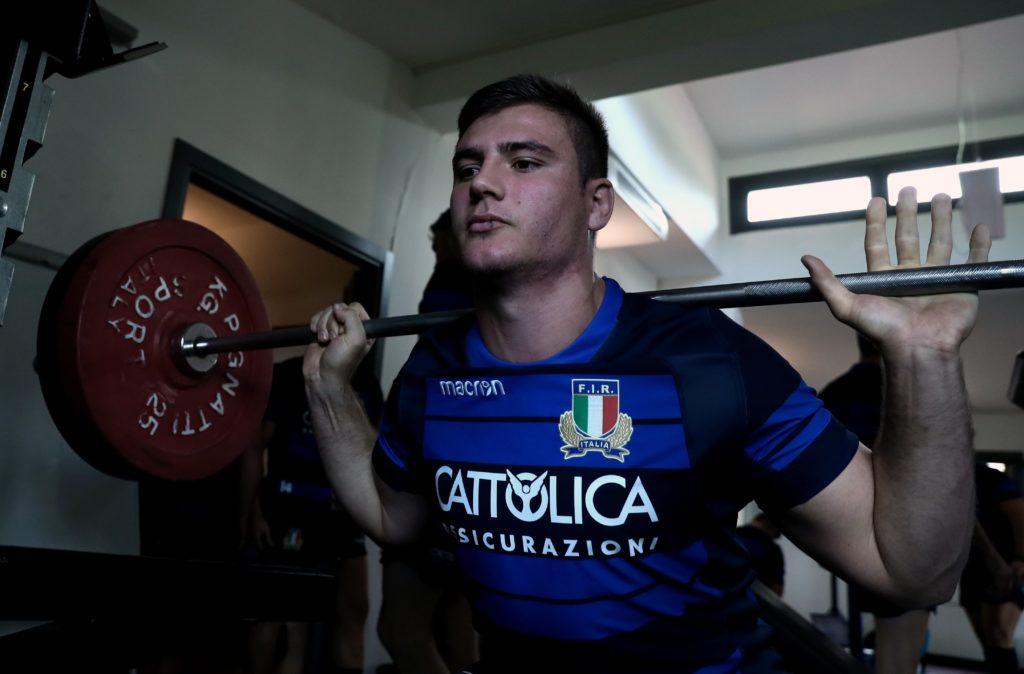
“But I’ve always had explosive legs, I’ve always been good at plyometrics, the jumping and powering, and that must transfer on to the pitch. Carrying is not something I would say I work on because it’s quite difficult to have someone put their hand up and say, ‘I’m going to tackle you Jake 10 times because he wants to work on his carrying!’”
Polledri’s route to Test rugby stems from his grandmother, Luisa, a ferociously patriotic Italian who still communicates almost exclusively in her mother-tongue after seven decades away from home.
Luisa is in her early nineties now but remains as sharp as a saw and has become an avid rugby viewer since her grandson’s international bow.
My nonna can’t really move about so much these days, but she still speaks Italian – she can’t really speak English if I’m honest! They don’t have ‘Jake’ here, they have ‘Jak’.
“It was my grandfather’s family who owned the company. He was just as Italian as her, but born to Italian parents in Wales. They told him there was an Italian woman working there and he should come down and meet her.
“They met in Devon and moved to Bristol, and they’ve been there ever since. They had a café there, where my dad was born.
“My nonna can’t really move about so much these days, but she still speaks Italian – she can’t really speak English if I’m honest! They don’t have ‘Jake’ here, they have ‘Jak’. Even the forwards coach calls me Jak. She will refuse to call me Jake, whenever she writes my name it’s J-A-K. That’s how Italian she is.”
Learning Italian is an ongoing project for Polledri and girlfriend Becca, although his grasp of the language is sufficient to get through team meetings and order his morning coffee.
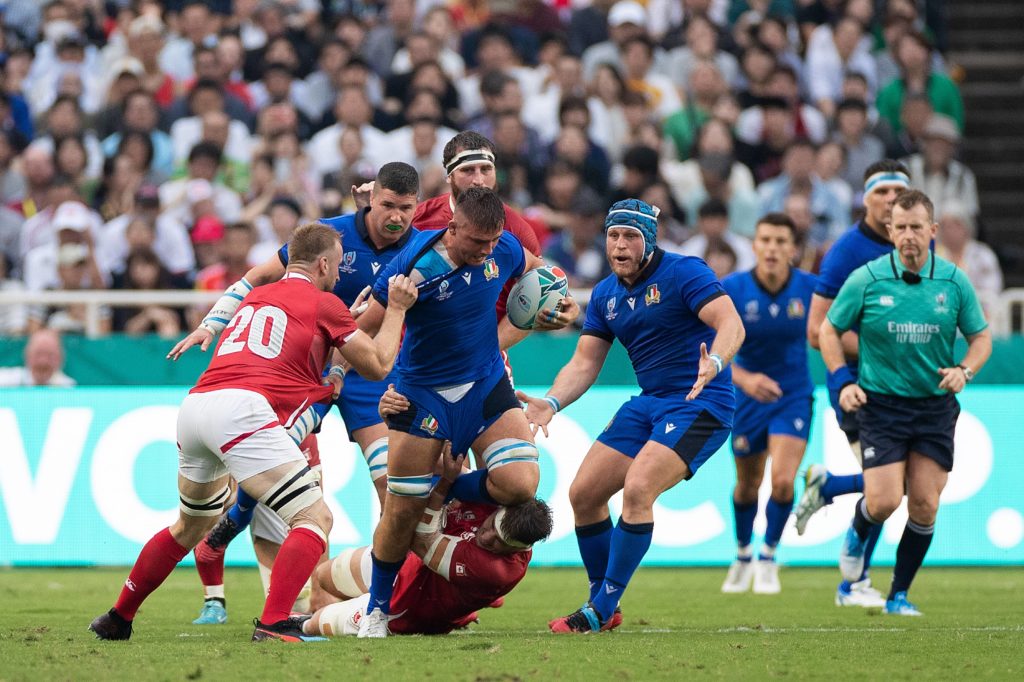
Much more mountainous a task is morphing Italy into a force on the Test stage, putting an emphatic end to the constant questioning of their place in the Six Nations.
The numbers here are not pretty – in fact, they are disheartening to all but the most optimistic of souls. Now 25, Polledri was 19 when Italy last won a Six Nations game in February five years ago. They have mustered just 12 victories in 21 seasons since their championship inclusion. This year, not only were they whitewashed, but they failed to register a single losing bonus point. They scored only six tries – the joint-fewest since 2013 – and 44 points – the fewest since 2004. It is a heinous record and is going to take some arresting.
“The results don’t lie,” Polledri says. “I’m not going to sit here and say that we should be winning these games or it’s unfair that we’re not. We are behind as a nation but we are not crazy behind. It’s just little mistakes. We are so close.
By throwing a nation out, you are not improving that nation. It’s a vicious circle but I have complete confidence in what we’re doing here. We are getting close. It’s just a frustrating period and people just need to bear with us.
Polledri on Italy’s participation in the Six Nations
“We are stuck in between the other teams in the Six Nations and the teams in the second tier. We are a lot better than the teams beneath. It’s difficult place to be right now. It’s so tough for spectators and they get so frustrated, but it’s about patience.
“By throwing a nation out, you are not improving that nation. It’s a vicious circle but I have complete confidence in what we’re doing here. We are getting close. It’s just a frustrating period and people just need to bear with us. Relegation is like saying someone should improve but not giving them any opportunity to improve.”
Polledri is at the vanguard of the wave of Italians that will propel them to the next World Cup and beyond. Sebastian Negri, Matteo Minozzi and Mattia Bellini are all of a similar age, with a younger group bedding in behind. There are shafts of light amid the gloom. Twenty-year-old fly-half Paolo Garbisi carved an outrageous debut try against Ireland last month, a Test where Italy’s starting XV contained only one player over 30.
Still, there is an air of Groundhog Day about the Azzurri’s Six Nations performances. Italy can live with the big dogs, but not for 80 minutes. They could stymie and unsettle a championship-seeking England for a while in their tournament finale, but come the latter throes, they were hopelessly blown away.
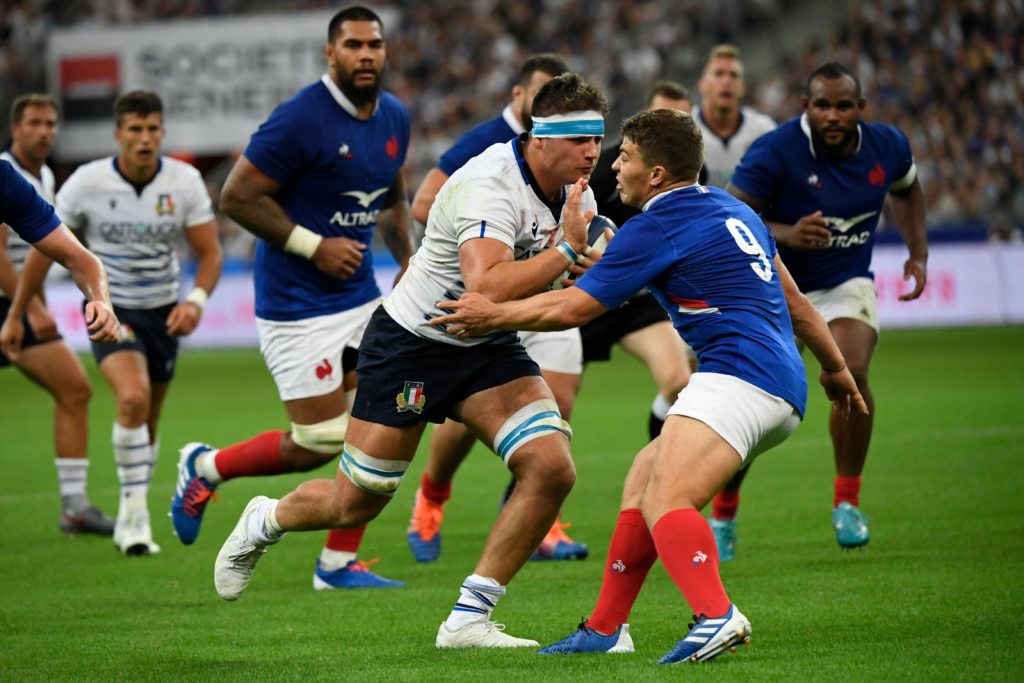
Fitness is a big issue. So is making good decisions when you are, as Polledri puts it, “blowing out of your arse”. Franco Smith, who became head coach after the World Cup, is gradually imposing his style upon the squad. After losing to Ireland and England, they will play Scotland, Fiji and France in the Autumn Nations Cup before the play-off weekend in early December.
“There are two main points,” Polledri says. “The first one is a fitness and endurance problem to begin with. I don’t know the stats, but I can hedge my bets that 60 minutes in most Italy games are very good, it’s the last 20 that we tail off and that was reflected in the England game.
“In the Ireland game the week before, we took 50 points, but if you look at their tries, a lot were down to silly mistakes. We made like 10, 15 phases in their 22, they turned over the ball, went down the other end and scored. An England team wouldn’t do that; they would score from those phases. England are not 10 times better than us – it’s those tiny little things that they wouldn’t do.
“We are at the beginning of a journey. Franco has made it very clear that all we need to do is get better every game. We had the stats up from the Ireland game and we’ve got better against England.
Luisa, as ever, will be watching this autumn. So will a nation starved of success. In Polledri, Italy have a totem, a leader, a man who can inspire by his actions, and a player rising faster through the game than any dough that was ever spat out of a Subway oven.
If you’ve enjoyed this article, please share it with friends or on social media. We rely solely on new subscribers to fund high-quality journalism and appreciate you sharing this so we can continue to grow, produce more quality content and support our writers.



Comments
Join free and tell us what you really think!
Sign up for free